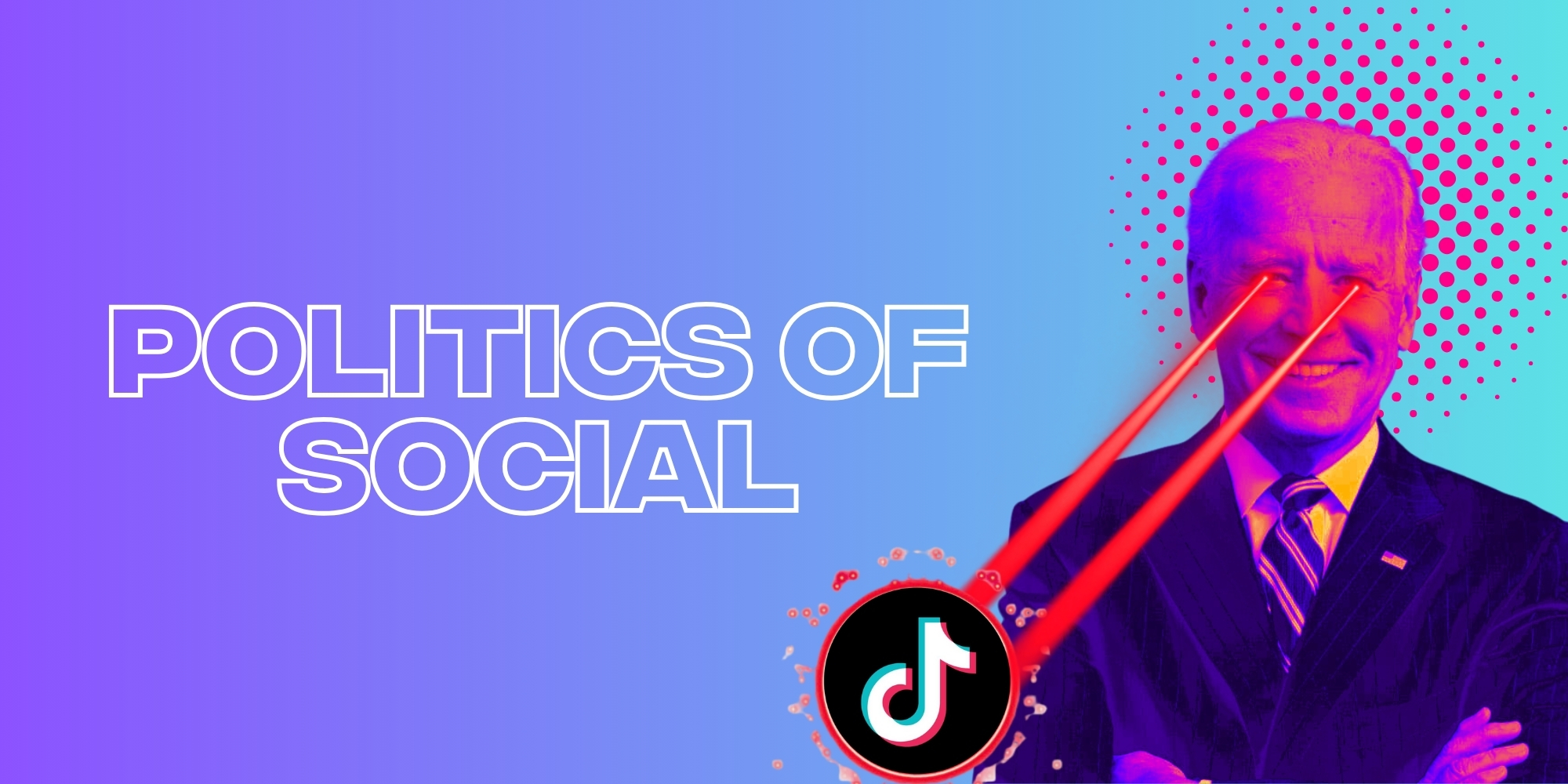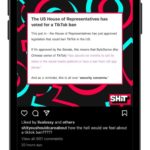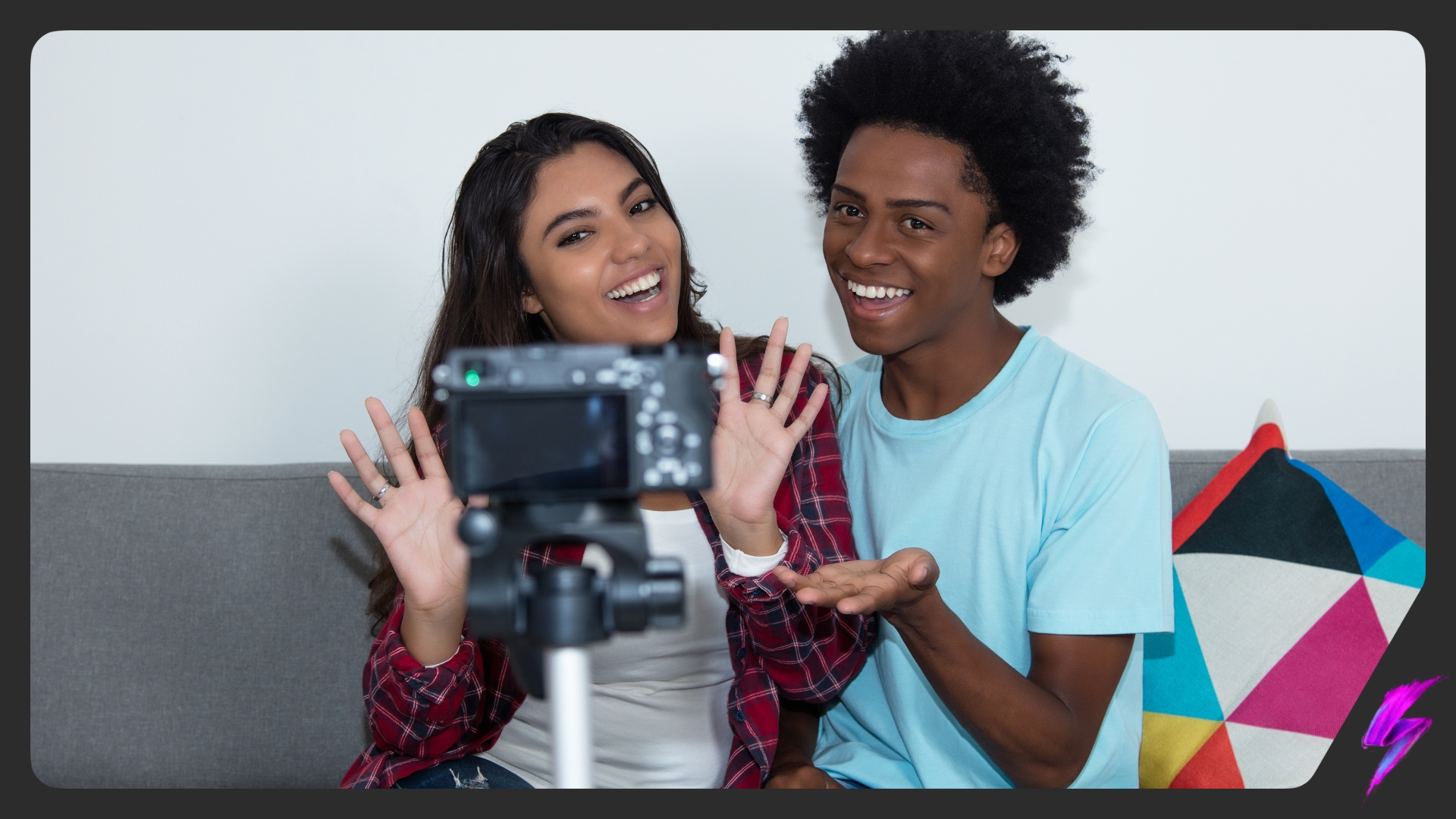Retweet for Democracy: Social Media and Politics
Mar 14, 2024
Social Media Platforms

The upcoming election period has users and politicians alike on the edge of their seats, given the tight relationship between social media and politics.
With a range of high profile countries coming up to major elections (the United States, India, the European Union, the United Kingdom, South Africa and more), many are predicting an especially tumultuous election period to be on the horizon.
What is causing this concern may surprise you. Not the building tensions between opposing parties, nor history of violence around these elections, but rather, social media and politics.
Social media has proven itself to be a powerful tool when it comes to elections. In the United States, it is widely accepted that social media was the key to democratic conditions mobilising Gen Z youth to vote in the 2022 midterm elections.
With the role of social media in politics growing increasingly more important as elections draw closer, major platforms are scrambling to define where they stand in politics.
Will they choose to allow political debate, or will they outlaw it completely? Or, will they go as far as to encourage it?
Let’s find out what social media and politics will look like in 2024.
@kamalahq #stitch with @FallonTonight
SOCIAL MEDIA AND POLITICS: META – INSTAGRAM AND FACEBOOK
Meta’s relationship with political debate on its platforms has long been precarious.
In response to the January 6th Capitol Riots in the United States, Mark Zuckerberg decided to reduce the amount of political content on his platforms. He claimed that the most persistent feedback Facebook and Instagram received were users expressing distress at the amount of “divisive political content” they saw.
Ultimately, Meta decided that the negative association users had between Facebook and Instagram as places of political conflict and debate, was not worth the engagement. Since then, Meta has been making moves to rid itself of political content altogether and remove itself from the conversation on social media and politics.
Meta has slowly been decreasing the amount of political content on its platforms, and upping the amount of AI-recommended content. This has led to a stark rise in the number of short-form videos on users’ feeds.
As of Q4 in 2023, 40% of the posts that users viewed on Instagram were AI based, with Facebook users seeing slightly less. This has led to users spending 7% more time on Facebook, and 6% more time on Instagram overall. Moreover, news content now makes up less than 3% of all content on Facebook.
@charlotteparler #greenscreen its important to stop misinformation but I’m deeply concerned this will also stop raising awareness on human rights and science communicators. It’s important to note its a PRIVILEGE to be apolitical. It means you have so much privilege you dont have to worry about the system coming for you and spoiler alert… the system will come for you eventually unless if you are the most wealthy & powerful of individuals. People are being actively legislated against, them existing is considered political … will see how this goes but staying aware and conscious and go follow political accounts!!!! #political #algorithm #viraltiktok #fypシ
This year, ahead of the upcoming electoral period, Meta has decided to take its crusade against social media and politics one step further.
Meta announced that it will be taking major steps to decrease “the presence of political content in its apps”. To do this, it will be ending its Facebook news initiative, ending all agreements that it has with local news publishers, and attempting to dilute debates and news content in general on Facebook and Instagram.
For those users who like a divide between social media and poltics, want their Instagram and Facebook to be politics-free-spaces, this is great news. It means less political content, and more happy-go-lucky, AI-recommended content.
Yet, for politicians, this move is a tad concerning.
Recent studies have shown that 30% of Americans find at least a portion of their news from Facebook. With the platform attempting to establish itself as one with a distance between social media and politics, these users will either have to find their information somewhere else, or go without it completely.
This could have major implications for upcoming elections, especially for politicians who have used Facebook in the past to reach older voters.
Ultimately, Meta moving away from politics is, undeniably, a good business decision. Cumulatively, the platform has paid almost $6 billion in costs due to settlements over the data breach it experienced, a penalty from the FTC, and several fines from the US Securities and Exchange Commission.
However, for politics, Meta’s new anti-politics stance is cause for upset. Politicians who once relied on Facebook and Instagram to reach their voters will now have to shift their efforts elsewhere. Perhaps, to TikTok.
SOCIAL MEDIA AND POLITICS: X/TWITTER
Back when X was Twitter, it was the ultimate crossover for social media and politics.
Twitter has long been recognized as the political platform, with users, journalists, politicians, and everyone in between, all taking to the app for the latest news. In fact, Twitter has played a major role in many political events over the past few years. The Black Lives Matter Movement found its footing on the platform, with journalists streaming protests, marches and more online for the world to see.
Social media and politics have always had a home on Twitter, with voices from all sides coming together to debate in comment sections and retweets.
As such, when Elon Musk took over the platform and renamed it X, Twitter veterans let out a sigh of disappointment.
Since his reign began, Musk has changed the political landscape of Twitter entirely. His free-speech crusade has led to an uptick in hate speech on the platform, largely spurred on by his decision to reinstate formerly banned profiles such as that of Donald Trump.
With the upcoming elections, Musk has made his stance on social media and politics abundantly clear; X will always be a political platform.
@therecount Elon Musk has had an … interesting first couple of days as the owner of Twitter 👀 #elon #elonmusk #twitter #politics #pelosi #meme #socialmedia #news #fyp #vine #elontwitter
Musk uses X to air his increasingly divisive political opinions, and he continues to urge everyone else to do so as well. He frequently posts about purposefully explosive topics, pointing fingers at any major public figure who will listen. Reportedly, Musk has even altered the algorithm to show his posts to more users. Even if these allegations are false, there is no denying that Musk’s one-sided, Republican beliefs heavily sway the overall conversation on X.
This, in combination with X’s stance on free-speech – a stance that promotes hate speech by relying too heavily on the platform’s Community Notes system, which is entirely ineffective – have turned X into an echo chamber of Musk driven opinions.
Given that 12% of US adults use X to get their news content, and that Meta is moving away from politics, this is likely to have a major effect on upcoming elections.
X has always had great political power, due to its popularity with reporters and newshounds, who historically have used the platform to source information before spreading it to other platforms. This is why Donald Trump was able to mobilise the platform so effectively in the 2016 elections, and quite likely why Musk was drawn to it.
The predicted impact of all this? A mass of voters with X informed conspiracy theories – sorry, opinions – that will sway polls and heavily impact elections.
This is, of course, unless another platform can sway voters. Another platform that is highly popular with young voters, and already has a healthy political movement operating on it.
Another platform, like TikTok.
SOCIAL MEDIA AND POLITICS: TIKTOK
https://www.tiktok.com/@jrmortimer/video/7254335348275301675?is_from_webapp=1&sender_device=pc&web_id=7311362875230012961
Since its inception in 2020, TikTok has had a widespread and active political movement.
The app has been home to lively debates and political discussion on topics from the Ukraine War to the overturning of Roe versus Wade in America. Many accounts are dedicated to politics alone, creating videos explaining topics, sparking debates, and answering questions.
TikTok’s love for social media and politics, when combined with the high number of Gen Z users on the platform, have made the app incredibly desirable to politicians.
Gen Z voters are an impressively powerful group for politicians, particularly for progressives and Democrats. This was proven true in the 2022 midterm elections, which saw the second-highest turnout amongst young voters in thirty years. Many of these voters were inspired to vote via TikTok.
In fact, recent studies have found that people under thirty in America are the most likely to get their news from TikTok. Moreover, 40% of Gen Z go to TikTok to search for something before they go to Google, meaning that politicians and groups can easily spread their messages.
As such, many community organisations have taken to targeting young voters through social media. Joe Biden’s election campaign has even created an account, through which they are hoping to connect with users.
Reaching young voters through TikTok is incredibly effective due to the platform’s format.

TikTok favours short, simple, videos where the creator simply speaks to the camera. This allows politicians and political creators in general to easily form a bond with their audience; thus, swaying them to their side.
On top of this, much like the Twitter of old, TikTok allows users to get information directly from journalists, politicians, and other officials. Many organisations have their own accounts, where they speak directly to their followers; decreasing the opportunity for misinformation.
Moreover, in the wake of X dying, and Meta removing itself from politics, political content on TikTok is ramping up. Users are seeking a place to continue to post their political ideas, without being attacked by dozens of X bots.
Whilst a few days ago this may have been a great idea, users turning to TikTok to make it The Political Platform, the imminent TikTok ban may be putting a stop to this.
Just today, the US House of Representatives has approved legislation that could lead to the ban of TikTok in the US. If it is passed by the Senate, ByteDance will have six months to sell its portion in TikTok or it will be banned from US app stores.
If TikTok is banned, users pushed off of Meta and X will have nowhere to go. The millions of users that go to these social media platforms to find their news, debate opinions, and educate themselves, will have to find new ways to scratch their political itch.
Many are concerned for the impact that this will have on elections, with so many users deciding on who to vote for through social media. Given that TikTok is so popular amongst Gen Z, and that older generations are also now becoming fond of it, this could have major ramifications.
SOCIAL MEDIA AND POLTICS: WHERE TO NEXT?
Ultimately, social media and politics have a tight relationship.
Millions of users find their news and political updates on social media. Politicians use these platforms to mobilise younger voters. Users test out their opinions, engage in debate, and educate themselves.
The combination of Meta leaving its days of politics behind, X becoming a Republican, bot run, Musk fanatic breeding ground, and TikTok teetering on the edge of a ban, has led to a power vacuum.
Where will users go to get their political fix? Will they simply find ways to get around Meta’s new format? Will they get creative and rise up against Musk’s free-speech agenda? Or, will another app try and wedge its way in to keep social media and politics alive?
@lana_linguistics Asking linguistics professors questions 📚 Professor Veronika Koller from Lancaster University 📚 “How do political parties use social media?” #shareyourvoice #lanacorpus #linguistics #socialmedia #politics
Perhaps, this could mean the rise of political, long form content on YouTube. Or, the resurgence of online publications.
For many users, there is little to do but hope and pray that TikTok survives, and is able to provide a place for generations young and old to discuss politics and share news.
For brands, this could mean finding a new way to share political thoughts and leanings with users; which has become an incredibly successful marketing tactic, given users current desire for brands to share their morals. Perhaps brands may take to LinkedIn, upping their production of thought pieces.
All in all, social media has, and will continue to, change the political landscape. It is an incredibly powerful tool that should not be underestimated. By politicians and brands alike.
Our influencer marketing agency and social agency are located worldwide, with our agency network based in the USA, UK, UAE and China.
If you want to find industry insights, visit our influencer marketing and social media blogs.
@ Socially Powerful
Social And Influencer Marketing News + Insights
Get in touch
We'll show you how to start powerful conversation, drive social engagement, build your brand, hit sales targets or meet other goals you have, wherever you are in the world.
Work with us





